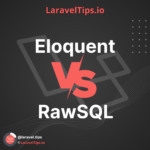Are you trying to decide between MySQL and PostgreSQL for your database system? With so many options available, it can be challenging to determine which one is right for your project. In this article, we will compare MySQL and PostgreSQL based on their advanced data types, performance, scalability, security, replication, and transactions, and help you choose the best database system for your needs.
MySQL vs. PostgreSQL: A Comprehensive Comparison
MySQL and PostgreSQL are two popular open-source relational database management systems that are widely used by developers and businesses worldwide. Both databases have their strengths and weaknesses, making it challenging to determine which one is better. Here is a comprehensive comparison of MySQL and PostgreSQL based on their features, performance, scalability, security, replication, and transactions.
Advanced Data Types
If your project requires advanced data types like arrays, hstore, and JSON, PostgreSQL is the way to go! PostgreSQL supports a wide range of advanced data types that MySQL lacks, making it a better choice for projects that require more complex data structures.
Performance
On the other hand, if your project requires fast performance for simple queries, MySQL is the better choice. MySQL is known for its excellent performance for simple queries, making it an ideal choice for applications that require fast data retrieval.
Scalability
Scalability is a crucial factor to consider when choosing a database system. Both MySQL and PostgreSQL are highly scalable, but there are some differences. MySQL requires manual partitioning, which means you need to partition your data manually to scale the database horizontally. In contrast, PostgreSQL has built-in partitioning support, making it easier to scale horizontally.
Security
Security is one of the most critical factors to consider when choosing a database system. PostgreSQL has advanced security features like row-level security, which MySQL lacks. PostgreSQL also supports SSL encryption and provides better authentication and authorization mechanisms, making it a more secure choice for your database system.
Replication
When it comes to replication, both databases have built-in capabilities. However, PostgreSQL’s replication is easier to set up and manage than MySQL’s replication. PostgreSQL supports asynchronous and synchronous replication, making it a more flexible choice for replication.
Transactions
Transactions are essential for ensuring data consistency in your database system. PostgreSQL is fully ACID-compliant, making it a more reliable choice for transactions. In contrast, MySQL is only partially ACID-compliant, making it less reliable for transactions.
FAQs about MySQL and PostgreSQL
Which database system is more popular, MySQL, or PostgreSQL?
MySQL is generally considered more popular than PostgreSQL, especially in the web development industry. However, PostgreSQL has been gaining popularity in recent years, especially for enterprise-level applications and data warehousing.
Which database system is easier to learn for beginners, MySQL, or PostgreSQL?
MySQL is generally considered easier to learn for beginners, as it has a simpler syntax and more straightforward installation process. PostgreSQL, on the other hand, has a steeper learning curve but offers more advanced features and functionality.
Is PostgreSQL faster than MySQL?
It depends on the specific use case and configuration. In general, PostgreSQL is considered to be more powerful and capable of handling complex queries and large datasets, while MySQL is known for its speed and efficiency with simpler queries and smaller datasets.
Which database system is more suitable for large-scale projects, MySQL, or PostgreSQL?
PostgreSQL is generally considered more suitable for large-scale projects, as it offers more advanced features for handling complex data and transactions. MySQL is better suited for smaller projects that require high speed and efficiency.
Can MySQL and PostgreSQL be used together in the same project?
Technically, yes, but it would require setting up multiple databases and configuring the project accordingly. It is generally not recommended, as it can lead to increased complexity and potential compatibility issues.
Which database system is more popular, MySQL, or PostgreSQL?
Conclusion
In conclusion, both MySQL and PostgreSQL are excellent open-source relational database management systems that offer unique features and benefits. The choice between them depends on your project’s specific requirements, including advanced data types, performance, scalability, security, replication, and transactions.
If your project requires advanced data types, PostgreSQL is the way to go. For fast performance for simple queries, MySQL is the better choice. If you need a highly scalable database system, PostgreSQL is a better option due to its built-in partitioning support. For better security features, including row-level security, PostgreSQL is a more secure choice. If you need a more manageable replication setup, PostgreSQL is easier to set up and manage. And if you require reliable transactions, PostgreSQL is fully ACID-compliant, making it a more reliable choice.
In summary, you should choose a database system that meets your specific needs and requirements. We hope this article has helped you understand the differences between MySQL
Recent Trending Tips
- Eloquent or RawSQL in Laravel: Which is Better for Your Application?
- Laravel Sail: The Ultimate Tool for Streamlining Your Development
- Boost Your Website Performance with This Simple PHP FPM Technique
- Elevate Your Laravel Coding Game With These 6 Rare VS Code Extensions For Effortless And Joyful Development
- Beginner’s Guide to Laravel Breeze: Quick and Easy Authentication Setup
- How to Define Eloquent Foreign Keys in Laravel: Tips and Tricks
- Avoiding 500 Errors in Laravel: How to Prevent Dead Routes in Resource Controllers
- How to Import Excel File to Database with Mapping Laravel
- How to Implement PHP PSR in Your Laravel Project
Follow LaravelTips.io on Instagram
If you found this post informative, we encourage you to share it with your colleagues. We value your feedback and would love to hear your thoughts on our blog and social media posts across platforms such as Instagram, Facebook, LinkedIn, and Twitter.



